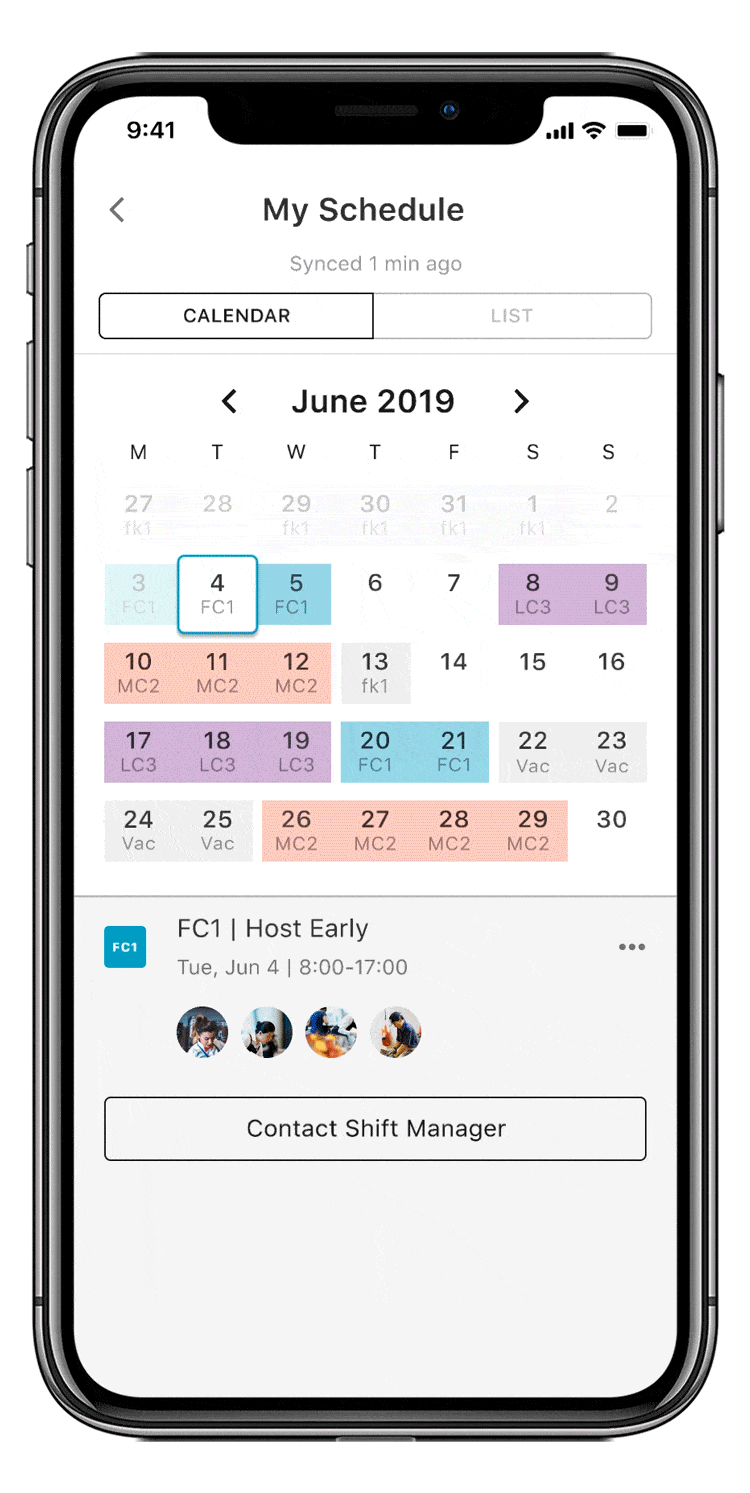Employees experience greater job satisfaction, higher engagement, and greater productivity when they have more autonomy in their careers. Now, there are companies with unlimited vacation policies and flexible seating arrangements instead of designated workstations.
But what do employees want most? More control over when they work. A work schedule app gives them just that.
Micromanaging is like kryptonite: it reduces productivity and makes employees emotionally retreat from their work and their employer. An app for work schedule management lets employees take the reins and have greater autonomy in their work.
When people are given the information and tools — like a team schedule app — to do their jobs in a way, and at a time that’s best for them, both employees and companies benefit.
Why Autonomy Is Important in the Workplace
Autonomy is more than just a passing trend.
Companies are leaning into Results Only Work Environments — an approach to employee management (first created at Best Buy) that steps away from the overly structured workday and more on getting things done in an employee-driven timeframe.
In fact, when employees have more freedom over these choices, they are 43% less likely to lose motivation at work.
Historically, managers and leaders have had career autonomy while their employees have had very little. This is especially true for frontline employees who are often assigned shifts and must coordinate their life — like childcare arrangements and doctors appointments — around work.
Now, frontline workers are in short supply and companies are struggling to retain them. They’re up against the more flexible lifestyles offered by the gig economy. Companies with employee-centric cultures and technology like a work schedule app are more competitive in the marketplace, and are able to attract talent over the Ubers and TaskRabbits of the world.
Creating a more autonomous workforce with an app for work schedule management results in more engaged, productive employees.
- Autonomy makes employees part of the equation in an organization, driving an inclusive culture.
- Giving employees greater autonomy is an action that says “I trust you.” Recognition and value lead to higher retention.
- The ability to achieve a work-life balance by having more say over their work schedule is what employees want most in a job.
- Autonomy gives employees ownership over their work and builds pride in what they do.
- When employees are accountable to themselves for how they spend their time, they are more productive.
Why Flexibility Is Important to Employees
Most people might guess that pay is the single most important determining factor in job satisfaction. But it’s not.
A recent Pew Research Center study showed,
When asked which of five benefits or work arrangements is or would be the most helpful to them personally, about three-in-ten Americans who are either employed or looking for work (28%) cite having flexibility to choose when they work, provided they put in their required hours.
People want more control over their schedule in order to secure a more equitable work-life balance. It’s often harder for shift workers and frontline employees to attain that goal because they are assigned time slots regardless of what works best for them and they are usually different shifts week to week.
A team schedule app fixes this by letting employees dictate when they work.
A recent study from UC Berkeley and UC San Francisco—“Consequences of Routine Work-Schedule Instability for Worker Health and Well-Being”—surveyed almost 30,000 hourly workers about their schedules.
What they discovered was that unreliable, haphazard schedules at work led to unhappiness, sleep deprivation, and mental distress.

This drive to adopt more flexibility is all thanks to millennials—the largest segment of todays’ workforce—who are demanding more autonomy. And companies are responding by implementing new technology, like work schedule apps and policies that are more focused on employee well-being than ever.
Work Schedule Apps Support a Self-Directed Workforce
When SIXTY Hotels, with luxury properties in New York, Miami, and Los Angeles, wanted to align their distributed workforce through a digital workplace they adopted Beekeeper’s mobile platform.
They quickly saw a 90% adoption rate among their staff, thanks to the program’s analytics dashboard that tracks employee engagement.
Now, they’ve been testing Beekeeper’s Shift Schedules, a new feature for work schedule management integrated into the mobile platform. Designed to empower frontline employees, Shift Schedule delivers a personalized and detailed work schedule to every employee, allowing them to be more interactive with their work schedule.
Programs like Shift Schedules and time schedule apps give employees greater command over when they work. This deepens employee engagement, and in the hospitality business that translates to better customer care.

The Digital Dream Team: A Digital Workplace with a Team Schedule App
A work schedule app facilitates greater employee autonomy. When it is part of a bigger digital internal communications platform with other features that empower employees, it takes productivity to a whole new level.
Beekeeper’s mobile-first digital workplace is an all-in-one platform with elements designed specifically to give employees a voice in the workplace. Now, the operations management platform can add ‘work schedule app’ to its list of credits, combined under one digital roof with other features that facilitate autonomy.
- Shift Schedules. When surveyed about their jobs, employees consistently say they want more control over their schedule. Shift Schedules is an answer to that call. The new feature expands the internal communications platform into a work schedule app, too. Shift Schedules gives employees the ability to have access to their complete work schedule on their mobile device. It enables direct communication with their managers and colleagues for shift management and swapping, notifying others when they are, and are not, available to work.
- Real-time, direct communication. Even with more autonomy over their schedule, employees still need to report back to their managers. A work schedule app should be one component of a bigger internal communication mobile platform. That opens channels for communication for direct messaging between managers and their team, no matter when they work.
- Messaging for collaboration. With a mobile-first digital workplace, employees can collaborate with their peers, across locations as well as shifts by communicating over the digital workplace. They can then also use the Shift Schedules feature to align work hours to collaborate in person. And as we know, collaboration leads to greater innovation.
- Surveys. We talk a lot about external surveys that reveal what employees want. A mobile app like Beekeeper allows companies to create surveys for their own employees via the mobile app. While workforce statistics from outside organizations are helpful, a digital workplace with a survey feature can retrieve hard data from a company’s own employees. Leaders can make strategic decisions specific to their employees’ needs.
Work schedule apps give employees what they want: more autonomy in their jobs — and their lives.





